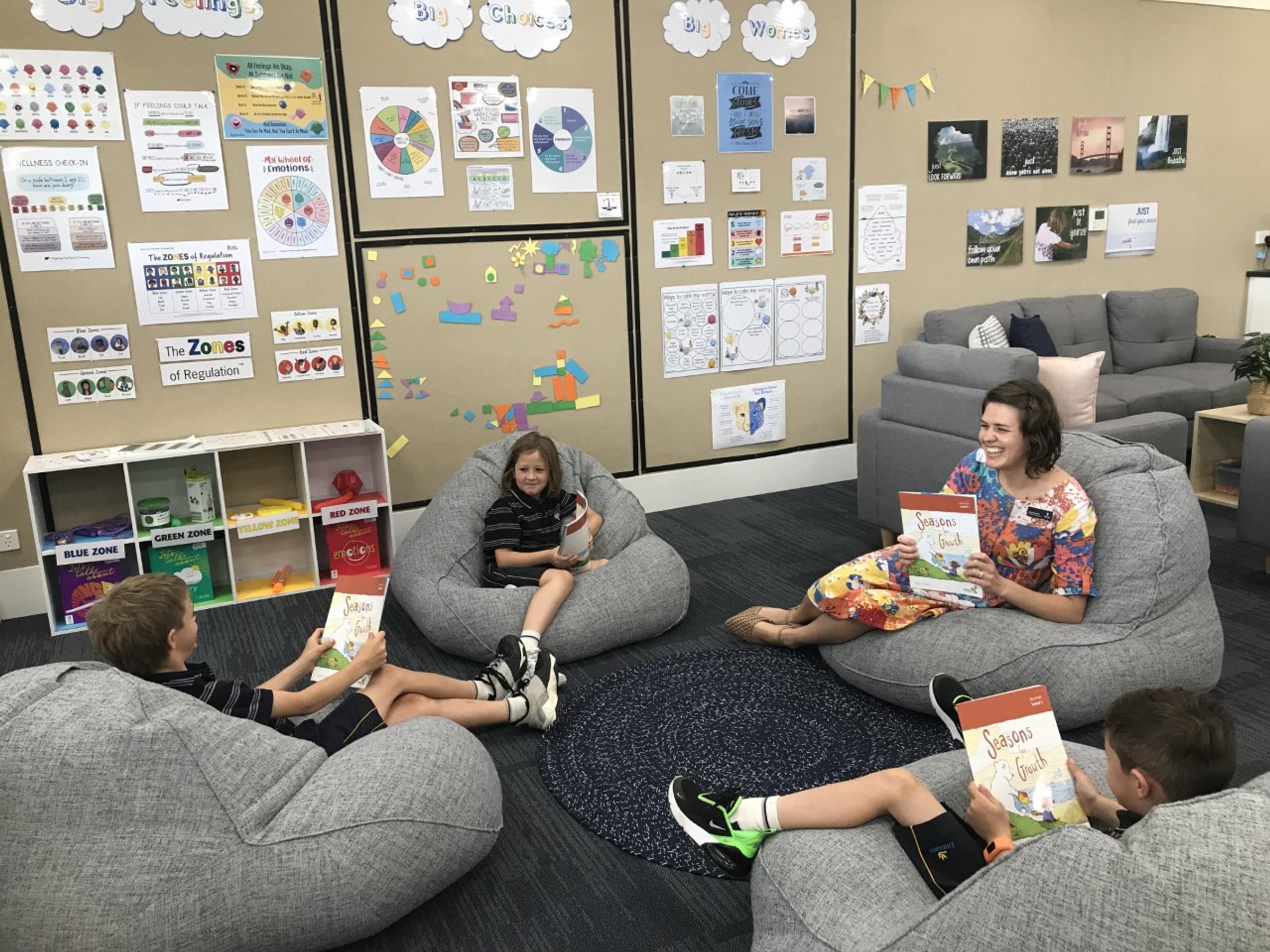From the Wellbeing Team
Tash King, Student Wellbeing Counsellor F-12

From the Wellbeing Team
Tash King, Student Wellbeing Counsellor F-12
When we hear the word anxiety, or when people say they feel anxious, do we know what that feels or looks like for that person? The answer is yes; all of us will experience anxiety at least once. Life can place us in situations that catch us off guard and make us worry and fear the unknown. We often hear the word anxiety and assume the worst. However, that doesn’t have to be how we think about anxiety. Anxiety can be used in a good way! Learning some tools to help us understand where and how we can store our anxious feelings helps us understand how to use our anxiety as a shadow of intelligence.
So, what does anxiety look and feel like, and how can we put it behind us to the best of our ability? Here are some tips on understanding what anxiety is and some resources to help us manage it:
What is anxiety?
Anxiety is classed as a future-orientated mood state. This is because we get anxious about events that typically, haven’t yet occurred, as it is a response to a perceived threat. Fear is a fundamental human emotion that produces bodily reactions that prepare us for fight, flight or freeze; this is a standard indicator for experiencing anxiety.
These changes arise through our autonomic nervous system, known as the ANS. It regulates specific body processes, such as blood pressure and breathing rate. Anxiety collaborates with our bodily responses, so when we feel these changes, we can assume we are beginning to feel anxious.
There are many contributing factors to create us to be nervous; these include our biological factors, our psychological factors and our social factors. When someone is experiencing anxiety, we want to remember that all of these factors impact that person and that we need to remain kind to someone who feels anxious.
Where do we feel anxiety?
The most common feeling we experience when we feel anxious is in our nerves, as they cannot relax. This means that most parts of your body begin to feel tight, and you may begin to have a sick feeling in your stomach. Anxiety feels like your world is starting to speed up or slow down. This is noticed through our heart rate and our breathing. We may also begin to see that our sleep becomes disturbed, leaving us wide awake when we want to sleep or tossing and turning all through the night. Concentrating on any daily tasks starts to become impossible and stressful.
Anxiety can affect us in different body parts depending on the biological, psychological and social factors that trigger the anxiety. I would encourage you to become aware of bodily responses when you feel anxious; once we are aware, it becomes easier to recognise and confront other contributing factors.
Where can we place our anxiety?
Understanding where in your body you feel anxious and becoming aware of your breathing allows us to implement different strategies to regain control of those anxious feelings. Discovering the critical issue of excessive worrying by identifying the worrying thoughts will enable us to confront the thoughts; we need to identify the unhelpful thinking patterns.
Safely learning to challenge those thoughts allows us to re-evaluate our beliefs about the current worry. Set aside a specific time to attend to those worries and hold an image in your mind; instead of thinking about it, generate alternatives to the worst feared outcomes; this allows control and a positive replacement for your unhelpful thinking patterns.
Breathing is one of the most important things to do when we feel anxious; counting from 1-10 with deep breaths in and out allows us to return to the present moment.
Plenty of resources are available to help us manage anxiety; here are some beneficial resources.
Further Support
Here is a short video explaining how the mind works with anxiety by Dr Russ Harris.
Dr Russ Harris has a bunch of free resources that I would encourage you to look at below.
Phone Apps:
Our Counselling Team is here to support your children through life’s challenges. You can refer to one of our counsellors on the Emmaus wellbeing support page.
"Therefore encourage one another and build one another up, just as you are doing." 1 Thessalonians 5:11
Blessings,
Tash King
Student Wellbeing Counsellor F-12
Onsite: Monday, Tuesday and Thursday